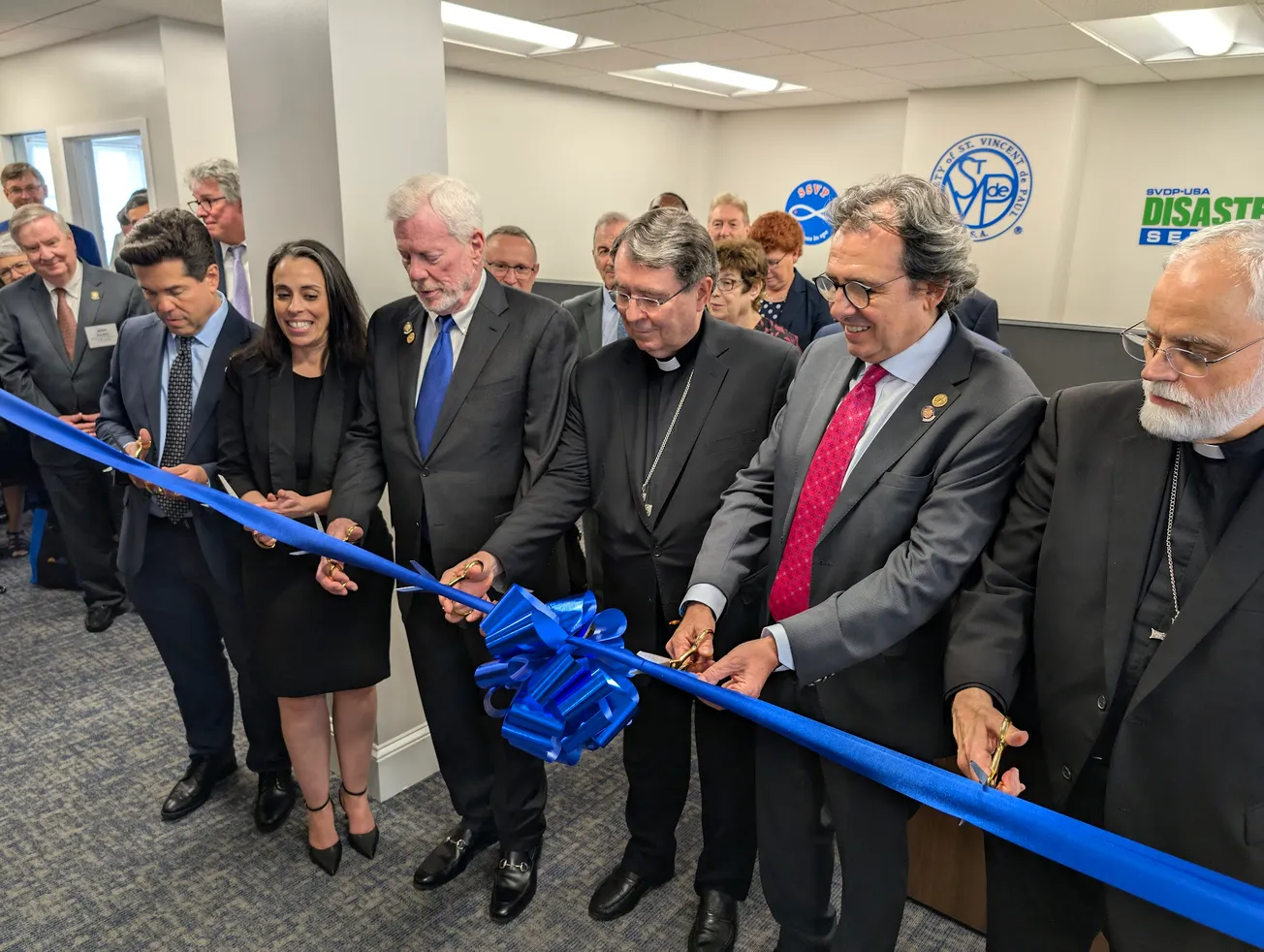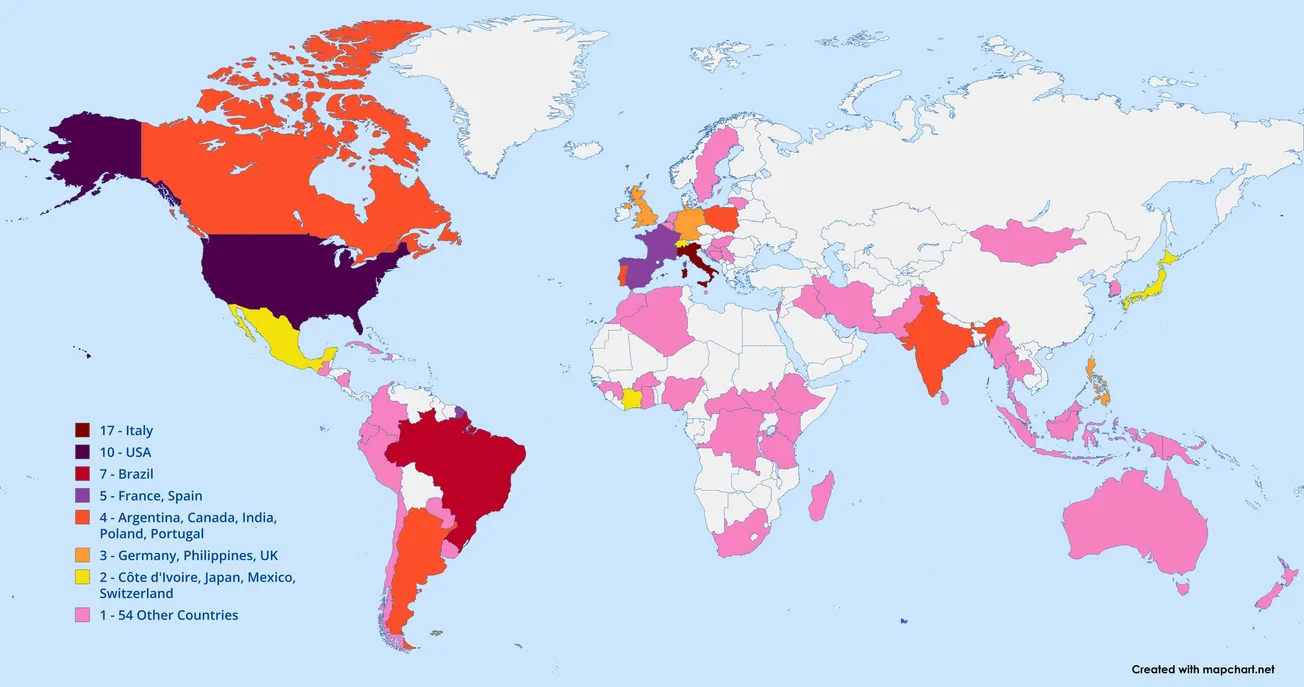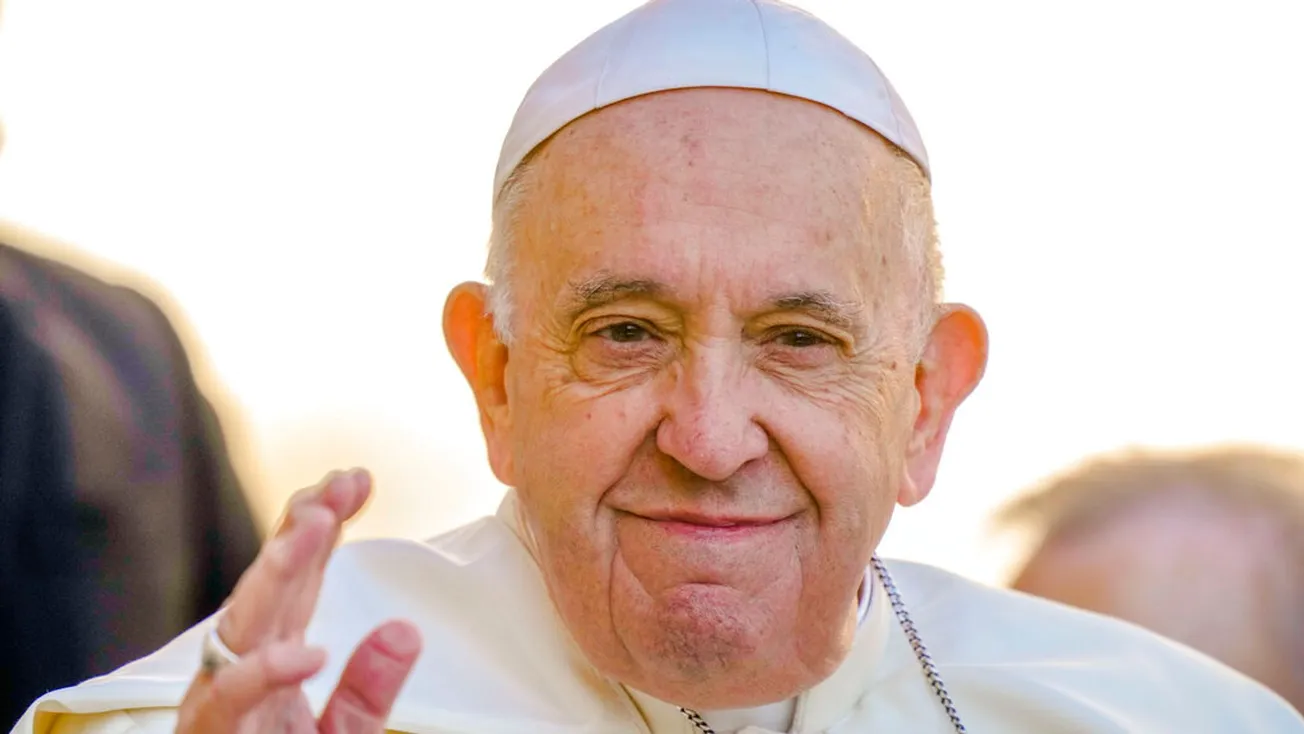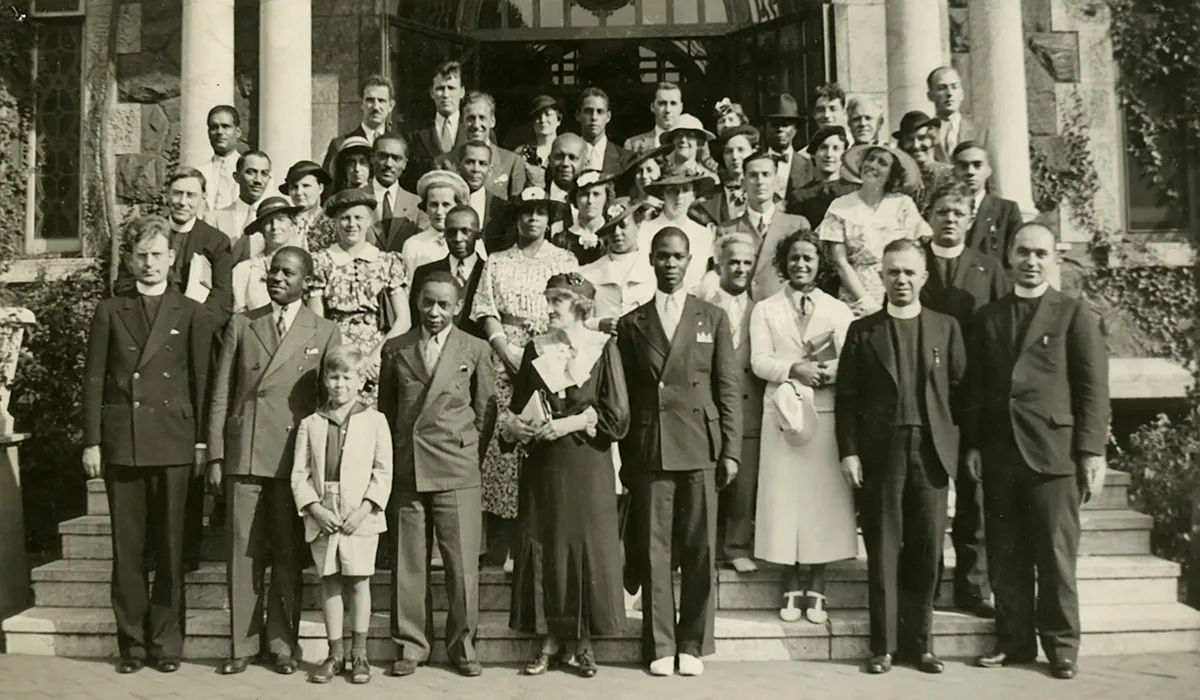WASHINGTON — The progenitor of a viral 2023 Nativity scene in occupied Palestine is promoting a new book on his theology as a Christian minister responding to uncritical support for the State of Israel.
The Orthodox-raised, West Bank-based Lutheran pastor Rev. Munther Isaac appeared in Washington on Tuesday, one of several stops in an ongoing book tour in the United States for “Christ in the Rubble: Faith, the Bible, and the Genocide in Gaza.”
The venue, the Anacostia location of the Arab-owned restaurant chain Busboys and Poets, is just over two miles from the U.S. Capitol. There, lawmakers have repeatedly voted to fund Israel’s ongoing invasion of Gaza—which has left up to 335,000 Palestinians dead, including more than 30,000 direct civilian fatalities.
“Gaza is the moral compass of our world,” said Isaac in Washington while describing his viral Christmas Eve sermon in 2023 based on his church’s “Christ in the Rubble” Nativity scene.
“I wanted people to look in the mirror and ask, ‘Where were you when answer was going through a genocide?’”
@MuntherIsaac has been on a US tour to celebrate the launch of his new book, Christ in the Rubble. He has visited many universities and spoke about the current state of the war in Gaza. Learn more! https://t.co/AxKVnO5xL7#eerdmans #gaza #christintherubble pic.twitter.com/A4UI6ZK9uK
— Eerdmans Publishing (@eerdmansbooks) April 2, 2025
Tuesday’s event, which drew a strong crowd in the back room of a restaurant—evoking comparisons to America’s Civil Rights struggle of old—featured a pair of pro-Palestinian congressional voices during the first year of the Israeli offensive, Rep. Rashida Tlaib of Michigan and former Rep. Cori Bush of Missouri.
Bush, a young African-American woman who first rose to prominence during the 2014 Ferguson protests, was defeated by AIPAC-backed Wesley Bell in last year’s Democratic primary.
“As someone who is a descendant of enslaved Africans in this country on both sides of my family, I remember wondering, ‘How were there good people who let my family be enslaved in this country?” How did that happen?’ It's because good people were silent,” Bush said in a panel discussion with Isaac, in which she quoted the Prayer of St. Francis.
“If you cannot stand up for another person even if it means you put yourself on the line, how good are you?”
The Palestinian-American Tlaib joined Isaac in condemning U.S. government support for what observers and experts have termed a genocide in Gaza, including the cutoff of humanitarian aid and repeated targeting of civilians and essential infrastructure.
She also emphasized that Americans by and large do not support Israel’s actions in the war, which began in October 2023 with a terrorist attack by Gaza's ruling militant group, Hamas.
“There is no ironclad support for genocide. There's no ironclad support for using starvation as a weapon of war,” said Tlaib.
“Imagine the generational trauma and inflection that we've caused. And I say ‘we’ because it is our country that is the primary investor, and we have to share that responsibility and continue to push back and continue to speak that truth… It is hard to watch it done in such a bipartisan way.”



Rep. Rashida Tlaib of Michigan, Cori Bush, and Rev. Munther Isaac at Busboys and Poets in the Anacostia neighborhood of Washington on April 1, 2025. (Nate Tinner-Williams/Christ at the Checkpoint Conference)
During his remarks, Isaac specifically lamented the response of Western Christians to the war, including mainline Protestant groups who previously presented themselves as progressive allies.
“They shocked us the most, because we thought they were our friends,” said Isaac.
“When Oct. 7 happened, they made statement after statement after statement that ignored the context, condemned one side, and then with the response of Israel, the vengeance campaign, the genocide they committed, these churches were silent and missing.”
Noting that he is often expected to speak and write of hope in the face of widespread destruction and death in his homeland, Isaac says his new book instead sketches a theology of survival and morality.
“Yes, we all want a ceasefire. I want more than that. I want justice and accountability. Those who commit war crimes must be held accountable,” said Isaac, also noting that international onlookers must act with precision, clarity, and courage.
“Solidarity, by definition, is costly. There were times, maybe, when you could have avoided paying the cost. But right now, more than ever, you can no longer support Palestine without facing consequences. And to me, maybe that's a good thing. Maybe we need to know where people stand.”
Nate Tinner-Williams is co-founder and editor of Black Catholic Messenger.









